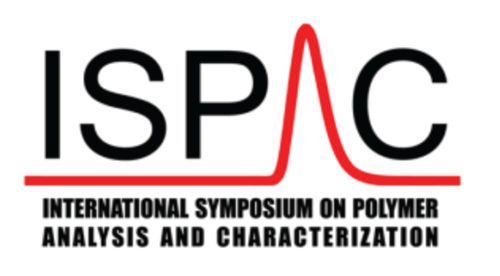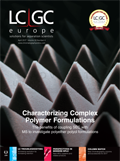ISPAC 2017: 30th International Symposium on Polymer Analysis and Characterization
The 30th International Symposium on Polymer Analysis and Characterization (ISPAC) will take place in Linz, Austria, on 11–14 June 2017.

The 30th International Symposium on Polymer Analysis and Characterization (ISPAC) will take place in Linz, Austria, on 11–14 June 2017.
ISPAC is a non-profit scientific organization formed to provide an international forum for the presentation of recent advances in the field of polymer analysis and characterization methodologies. This unique symposium brings together analytical chemists and polymer scientists who are involved in the analysis and characterization of polymeric materials. Meetings are held annually, rotating to venues in the USA, Europe, and Asia, with ISPAC 2016 taking place in Singapore.
ISPAC sessions comprise a three-day programme and feature invited lectures, poster sessions, and discussion and information exchange sessions, all focused towards polymer analysis and characterization approaches, techniques, and applications. Each session features multiple lectures and a one-hour open discussion period where participants from academic, industrial, and government settings can discuss different aspects of polymer analysis and characterization approaches, techniques, and applications. The symposium offers a perfect networking platform, enabling the free exchange of ideas and tips about different techniques, as well as an opportunity to learn about the latest developments firstâhand.
ISPAC 2017 will focus on several topics including a broad spectrum of polyolefin-related themes, specific topics on advanced fractionation, natural polymers, solar applications of polymers, and electrical properties of polymers. Esteemed scholars from different institutions will give plenary lectures that will be followed by invited and contributing papers. The first day of the conference will be a workshop on advanced characterization methods and is specifically designed for graduate students and young researchers. The topics and speakers of the workshops are as follows:
- Andreas Schoenhals, BAM, Berlin, Germany
Broadband Dielectric Spectroscopy as a Complementary Analytical Tool to Characterize Polymer Systems
- Manfred Wilhelm, Karlsruhe Institute of Technology, Germany
Rheology: From the Basics up to Complex Polymers
- Stepan Podzimek, University of Pardubice, Czech Republic
Determination of Molar Mass Distribution and Branching of Synthetic and Natural Polymers Using Separation Techniques with Advanced Detection
- Antje Potthast, UniversitÐt fЯr Bodenkultur, Tulln, Austria
Analyzing Lignocellulosic Biopolymers-Challenges, Requirements, and (some) Solutions
- Clemens Schwarzinger, Johannes Kepler University, Linz, Austria
Advanced Mass Spectrometry of Polymers
A number of invited speakers have already confirmed their attendance from institutions across the world as well as a number of sponsors who are supporting the conference and will be providing an accompanying instrument exhibition.
More details on the ISPAC 2017 symposium including registration and abstract submission can be found at www.ispac-conferences.org
As the organizers of this conference we hope to see you there and look forward to celebrating the 30th anniversary of ISPAC with you.
Prof. Harald Pasch (University of Stellenbosch, South Africa)Prof. Clemens Schwarzinger (Johannes Kepler University, Linz, Austria)

Free Poster: NDSRI Risk Assessment and Trace-Level Analysis of N-Nitrosamines
April 25th 2025With increasing concern over genotoxic nitrosamine contaminants, regulatory bodies like the FDA and EMA have introduced strict guidelines following several high-profile drug recalls. This poster showcases a case study where LGC and Waters developed a UPLC/MS/MS method for quantifying trace levels of N-nitroso-sertraline in sertraline using Waters mass spectrometry and LGC reference standards.
New Guide: Characterising Impurity Standards – What Defines “Good Enough?”
April 25th 2025Impurity reference standards (IRSs) are essential for accurately identifying and quantifying impurities in pharmaceutical development and manufacturing. Yet, with limited regulatory guidance on how much characterisation is truly required for different applications, selecting the right standard can be challenging. To help, LGC has developed a new interactive multimedia guide, packed with expert insights to support your decision-making and give you greater confidence when choosing the right IRS for your specific needs.
Using the Carcinogenic Potency Categorisation Approach (CPCA) to Classify N-nitrosamine Impurities
April 25th 2025Learn how to manage nitrosamine impurities in pharmaceuticals with our free infographic. Discover how the CPCA approach establishes acceptable intake limits and guides the selection of NDSRI reference samples. Stay compliant and ensure safety with our ISO-accredited standards.

.png&w=3840&q=75)

.png&w=3840&q=75)



.png&w=3840&q=75)



.png&w=3840&q=75)








